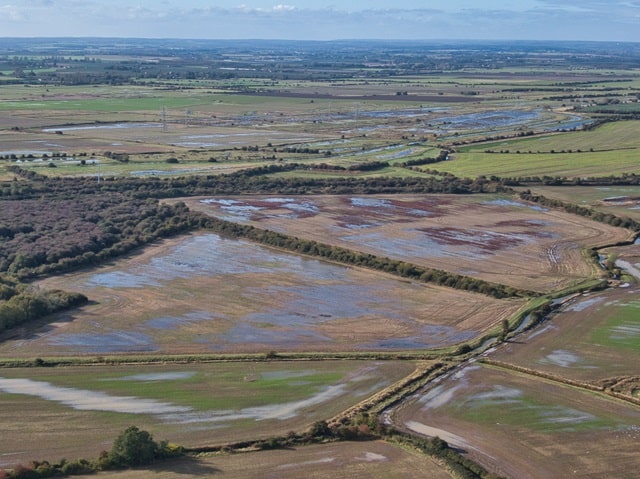
Green Councillor Kevin Pressland is a passionate campaigner for nature and the natural environment. His understanding of the threats faced by the natural world is based on expertise gained from a 40-year career in horticulture, garden design and sustainable land management.
People may or may not be aware of the latest ‘State of Nature Report 2023’ this continues to show biodiversity decline of birds, insects, mammals etc as did the 2013, 2016 and 2019 previous state of nature reports.
The Minster Marsh National Grid Converter and the associated pylons and groundwork will, I believe, destroy habitat of many species including IUCN red listed species example curlew, woodcock and major declining species like turtle doves, skylark, nightingales, raven. These will likely be lost.
Whilst there are mitigation measures my opinion is that the works will damage irreparably this site for multitudes of species. The site of special scientific interest will be impacted. Many SSSI’s in the UK have been damaged by development in the last decade and before. UK biodiversity is in major decline a seventh of species is heading for extinction and 43% are severely declining.
A diverse planet is intrinsic to a healthy vibrant, beautiful planet and if we really care for future generations of humans, we should act to retain diversity of species.
We do not live in a bubble away from nature, nature’s services enable us to have economies as Tony Juniper’s book ‘What Has Nature Ever Done for Us’ a mindful provoking read clearly shows, its full of facts and realities of the services nature provides for us, which we are increasingly jeopardising.
Yes, we need forms of renewable energy, but in what way and how these are implemented should be a key factor in achieving this energy requirement because we are in both a climate change and ecological crisis emergency (the two are intrinsically linked).
Local production for local consumption should be the first port of call, for example solar panels on all new builds, domestic or commercial, with additional energy produced going to sub stations supplying local industrial complexes and reducing voltage drop loss.
Yes, we need larger renewable complexes like the wind arrays of the coast etc and clearly these need to be transported to larger industrial complexes or cities to add to energy production. These larger energy suppliers should add to energy produced locally allowing people to have increasing control of the energy production away from being beholden to large energy producing conglomerates.
It cannot be right that the interests of corporate energy providers financial returns trump the interests of the public. Big energy companies do not want energy production on properties, that’s why government continue to kick the can down the road on mandatory renewables on all new builds whether it be air source heat pumps, photovoltaic panels. Ironically a mandatory regulation could boost local economies and skillsets throughout the UK and beyond.
We also need to see proper full systems thinking as the default position on all manufacturing so the issues of waste are genuinely addressed. Nature does not waste and nor should we, we need to learn and learn quickly from nature. This can only happen through governments really governing.
The likely party to win the next election sadly appears not that much better, its obsessed with growth. Our current growth models are not conducive to living within the constraints of this planet’s ability to survive in its current diversity and health.
The Intergovernmental panel on climate change (IPCC an intergovernmental body of the United Nations) and highly respected figures in future economic modelling like Richard Douthwaite book ‘The Growth Illusion’ and Tim Jackson book ‘Prosperity Without Growth’ clearly show a different approach is seriously needed and how this could be achieved.
Please contact National Grid and your MP on the Minster marsh converter proposal and express your feelings on this matter before 18/12/2023. There are alternatives to the proposed approach.
Apparently, an offshore approach is feasible and would reduce impacts to nature, but would cost National Grid financially more initially, but not in the long term. Please demand a different approach and save Minster marshes.

